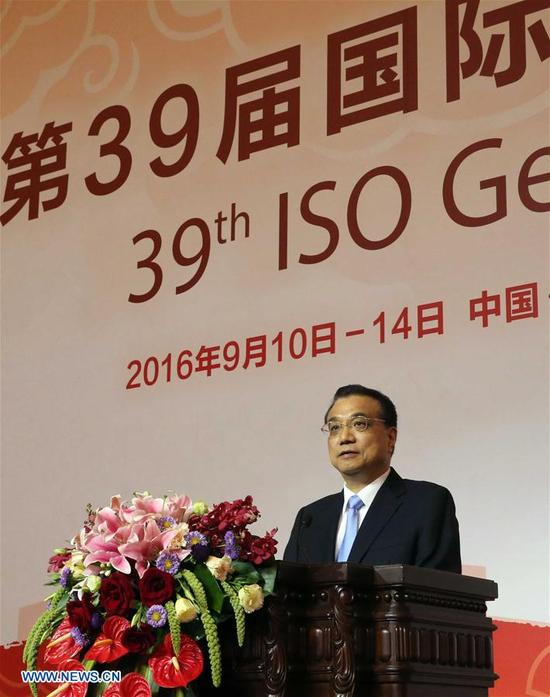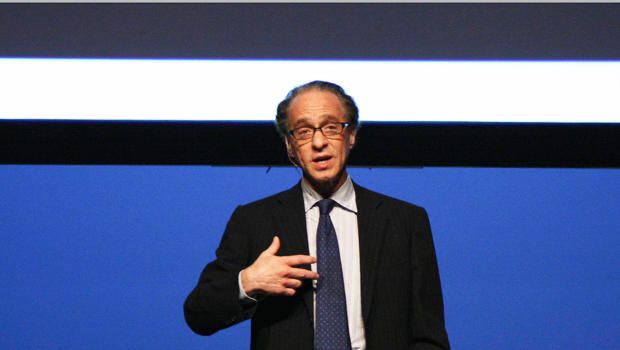“Brittan Heller has a hard job. The Anti-Defamation League’s first director of technology and society, she’ll be working with tech companies to combat online harassment.”


“Brittan Heller has a hard job. The Anti-Defamation League’s first director of technology and society, she’ll be working with tech companies to combat online harassment.”
My new story for VentureBeat on the coming of robot bodyguards. I’ll be speaking about this next week at RoboBusiness 2016, a major robotics conference in San Jose:
I recently consulted with the US Navy on all things “transhuman.” In those conversations about how science and technology can help the human race evolve beyond its natural limits, it was clear that military is keen on replacing human soldiers with both fighting and peacekeeping machines so American military lives never have to come under fire or be in harm’s way.
However, it’s the peacekeeping technology that is particularly interesting for many civilians. While you wouldn’t want an armed Terminator in your home, you might like a robot that travels with you and offers personal protection, like a bodyguard. In a survey by Travelzoo of 6,000 participants, nearly 80 percent of people said they expect robots to be a significant part of their lives by 2020 — and that those robots might even join them on holidays.
The robotics industry is already considering this, and recently debuted some security models. A few months ago China came out with its Anbot, which can taser people and be used for riot control. And South Korea already uses mobile robot guards in its prisons. Even in San Francisco, you can rent out robot guards to protect your businesses and property. However, the rent-a-robot company, Knightscope, recently came under fire for accidentally running over a toddler at the Stanford Shopping Center.
Needless to say, problems are expected as the burgeoning field of robot-human interaction evolves. The good news is, there’s already years of information to draw on. Human-robot interaction and protection have been here in the form of robotic dogs for nearly a decade. There are dozens of different brands and models available — some of which offer motion detector warnings to protect against burglars and can be programmed to bark at intruders. While some will say robot pets are no more efficient than well-placed cameras, microphones, or speakers, they do offer genuine and personal protection for consumers – not to mention a sense of novelty and enjoyment.

“As a neuroscientist who studies people of all ages and walks of life, I’ve gathered insights over the decades that can alleviate distraction, dissatisfaction and suffering, especially for people at work, including executives and leaders.”

Bioquark, Inc., (http://www.bioquark.com) a life sciences company focused on the development of novel, natural bio-products for health, wellness and rejuvenation, has entered a collaboration whereby Forest Organics LLC & I-Beauty Charm LLC, a unique, integrated facial and body cosmetology facility, and their state-licensed, highly skilled skin care specialists, will be utilizing novel, natural Bioquantine™ extract complexes as part of their spa procedures, as well as providing consumer access to a range of proprietary skin care products (http://www.forestorganics.life).
“We are very excited about this first company collaboration in the area of beauty care and cosmetology,” said Ira S. Pastor, CEO, Bioquark Inc. “It is another step forward towards the wide applicability of our natural combinatorial bio-products, across a broad range of health and wellness segments, as well as future franchise opportunities.”
The integrated Forest Organics LLC & I-Beauty Charm LLC model was conceived by local Tampa business women, Nadia Goetzinger and Tatyana Reshetnikova, to offer a new generation of products and services related to skin beautification and rejuvenation.
“We look forward to working closely with Bioquark Inc. on this initiative and providing an exclusive range of services and products to customers throughout the greater Tampa metropolitan area,” said Ms. Goetzinger”

About Bioquark, Inc.
Bioquark Inc. is focused on the development of natural biologic based products, services, and technologies, with the goal of curing a wide range of diseases, as well as effecting complex regeneration. Bioquark is developing both biopharmaceutical candidates, as well as non-Rx products for the global consumer health and wellness market segments.
About Forest Organics LLC & I-Beauty Charm LLC
Forest Organics LLC & I-Beauty Charm LLC operate a unique, integrated facial and body cosmetology facility providing novel rejuvenative spa and cosmetology services and products.

My suggestion; don’t be one of those companies and governments in the next 5yrs that waits until the 9th hour meanwhile others planned, invested, and executed properly so they’re not exposed like you are.
The race to create new cryptographic standards before super-fast quantum computers are built that can rip apart data protected by existing encryption methods isn’t going fast enough, two senior Canadian officials have warned a security conference.
“I think we are already behind,” Scott Jones, deputy chief of IT security at the Communications Security Establishment (CSE), responsible for securing federal information systems, told the fourth annual international workshop on quantum-safe cryptography in Toronto on Monday.
Quantum computing – or more accurately, computers that use quantum mechanics – is not a dream, Jones and others told the conference of business executives, crypto academics, IT companies and government officials. One prediction is there’s a one in seven chance that by 2026 a quantum computer will exist that can break RSA-2048 encryption. It may take longer — or, if there’s an advance, shorter.

China has its sights to be the World’s SV.
Editor’s Note:
The New York Times business bestseller Start-Up Nation: The Story of Israel’s Economic Miracle which explores the roots of Israeli innovation has garnered global attention and won its co-authors Dan Senor and Saul Singer worldwide fame overnight. In a recent interview with Global Times reporter Zhang Ni (GT) in Beijing, Singer (S), who served as an adviser to the US House Foreign Affairs Committee before moving to Israel in 1994, said he believes China is more innovative than people think. He suggested that China is ahead of the US in some aspects, as Facebook is now trying to copy China’s WeChat.
GT: Do you think China is a start-up nation? Do you think China is an innovative country?
S: The process that happened first in the US and then in Israel is happening now in a very big way in China. Entrepreneurship is growing rapidly in China. There are probably thousands of start-ups already. In addition to this natural growth, the Chinese government is strongly encouraging people. Entrepreneurship is very risky and difficult. When you have encouragement from the government, it makes things easier. China is already producing some very innovative companies as well as a lot of start-ups. This process has moved fast in the past five years and is going to move tremendously as well in the next five. I think China is much more innovative than people think. They just don’t realize how innovative Tencent, Huawei and Xiaomi or many start-ups are.

Nathaniel Mauka, Staff Writer Waking Times
An uncensored look into DARPA, the US government’s secretive agency, reveals exactly how the brain of the military industrial complex operates. Utilizing the super-scientific intellects of men, the agency may have stumbled upon the ultimate code to utterly control the human race, making all other DoD achievements pale in comparison.
DARPA’s arms reach far and wide – touching universities, small businesses, the public, of course, and also the established media. Despite its collaborative success, the brain running the show is acutely flawed, for its aim is not to protect and serve, but to control.
3D printing obviously has many advantages, but energy efficiency is one that is rarely mentioned. In fact, depending on the application and scale, 3D printing produces far few carbon emissions than many other manufacturing options. In an attempt to harness that advantage, the luxurious Dutch Hotel De Slaapfabriek from Teuge is planning to build a unique, 3D printed and zero-footprint conference location that provides a highly inspiring and modern environment. Construction is scheduled to kick off in July 2017, and could be completed in as little as ten days. If successful, it could pave the way for a new environmentally-friendly construction 3D printing paradigm.
This forthcoming structure could not have picked a more inspiring location in the Netherlands. De Slaapfabriek is a luxurious experience hotel in Teuge, The Netherlands (very near to International Airport Teuge in Gelderland). With unique twelve rooms available to clients, it’s a premier location for honeymoons and business trips. Since opening its doors in 2009, De Slaapfabriek has also won award after award, and currently boasts a Booking.com appreciation score of 9.3. The only thing that’s missing is a conference location, and when necessary the luxury breakfast and lounge area is transformed into a conference room. But this is not the best solution, and founders Arvid and Marjo Prigge developed an ambitious plan: to construct a completely new, environmentally-friendly conference location.


Good move by China especially as one is determine to expand quickly and expedite their competitive edge around PLM and SCM.
BEIJING, Sept. 14 (Xinhua) — China will promote standardization to push industrial upgrades and foster new competitive edges, Chinese Premier Li Keqiang said on Wednesday.
Standardization represents a country’s core industrial competitiveness and overall prowess and China will highlight standardization as part of its reform agenda, Li said while addressing the ongoing 39th International Organization for Standardization (ISO) General Assembly.
China will speed up the development of standards for emerging sectors, technology and business models to promote innovation and entrepreneurship while forcing out outdated production capacity, Li said.
